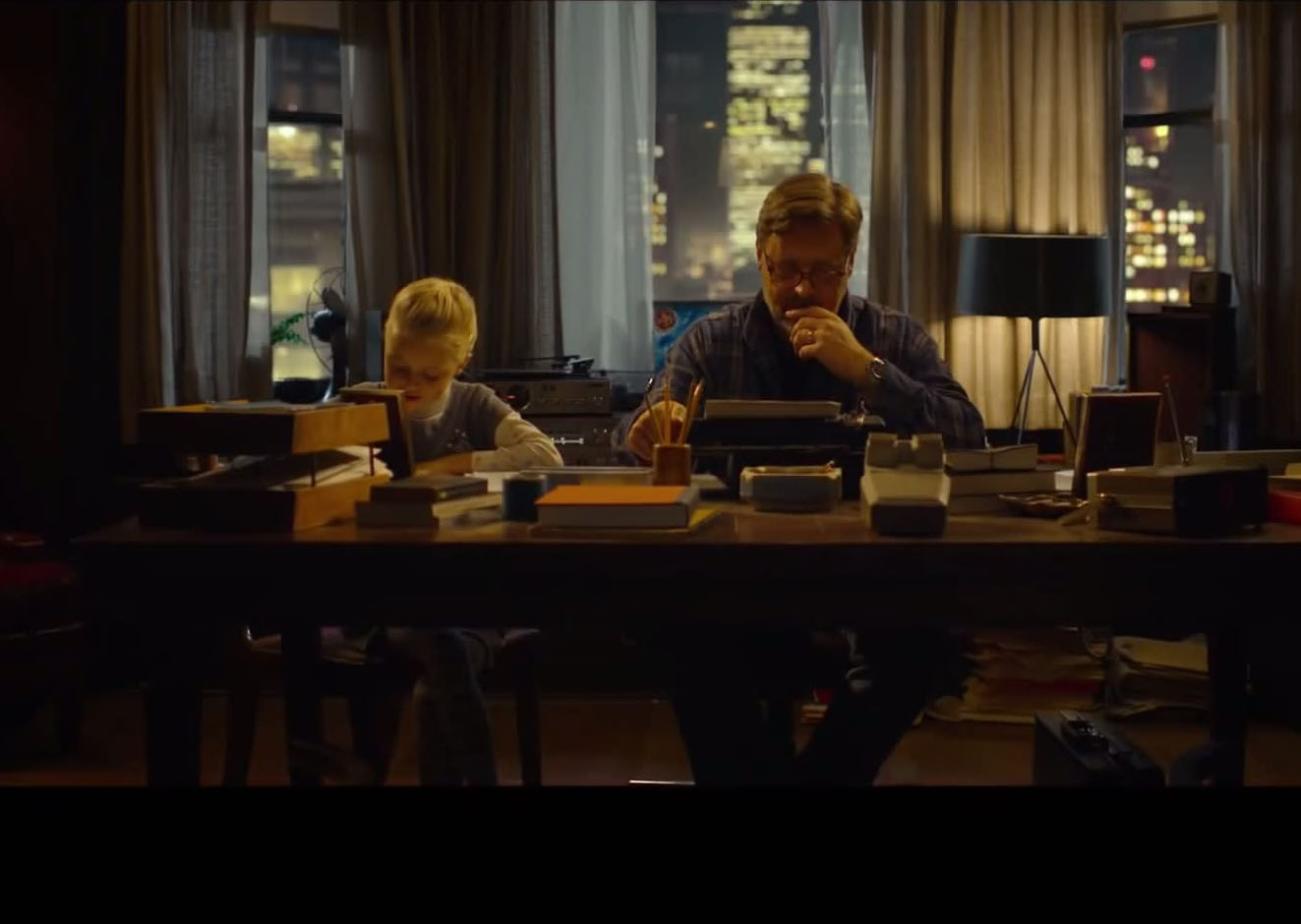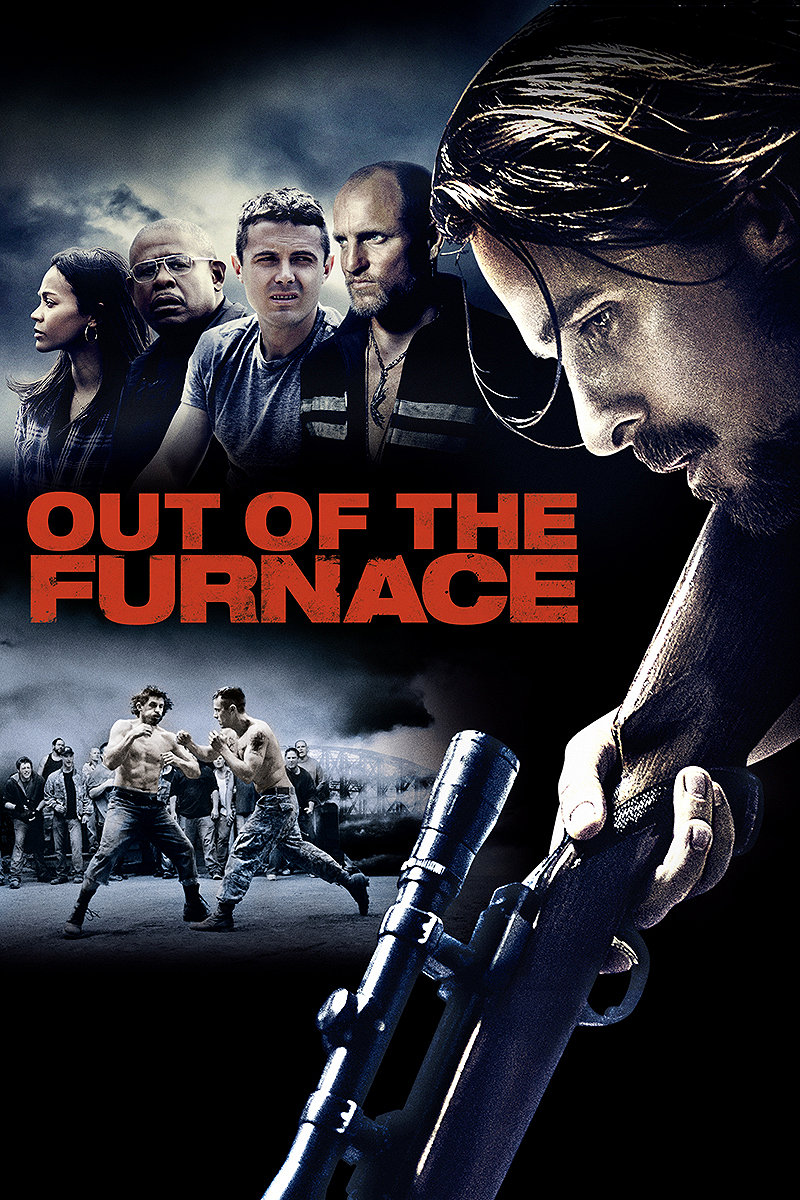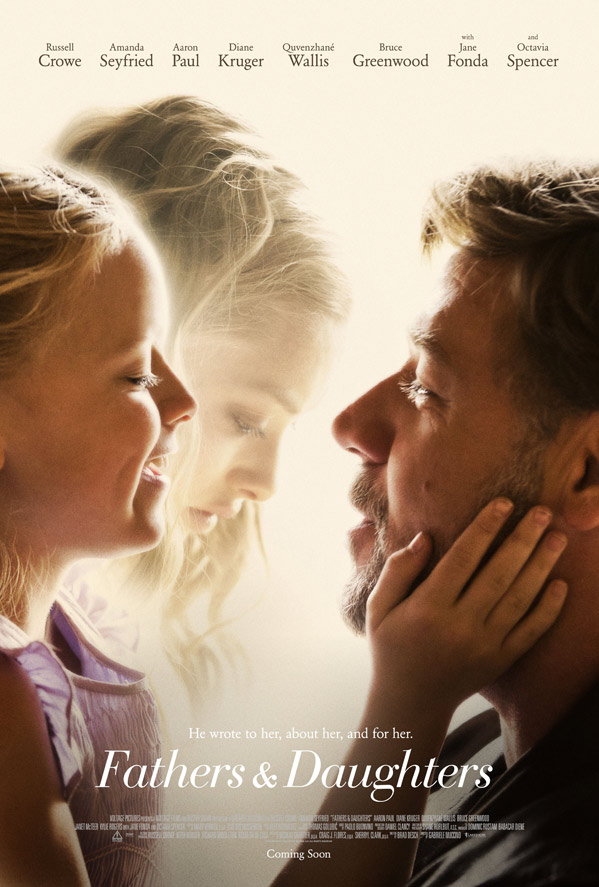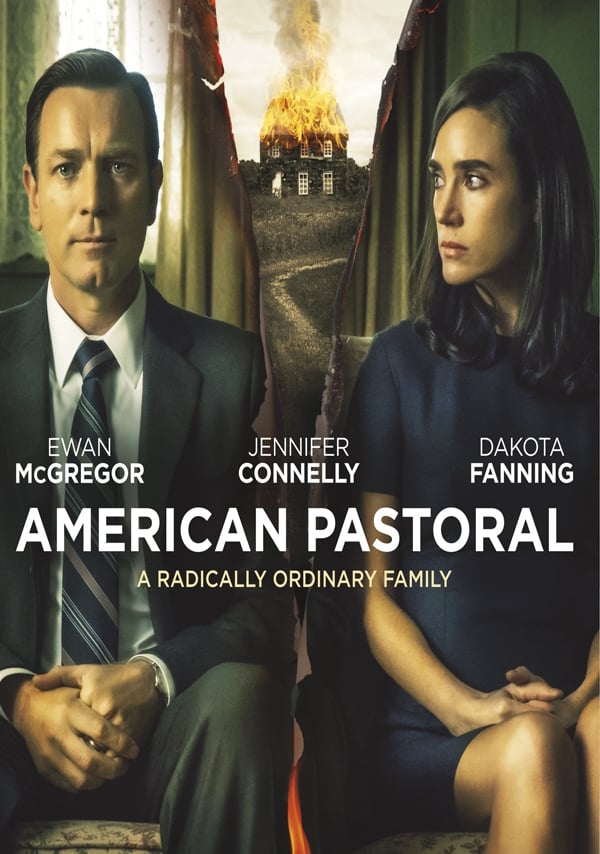
Our next three movies spotlight brotherly love, and the love of fathers and daughters, challenged by poverty, separation, and tragic accidents. All three are played against the background of Pittsburgh mills, parks, and streets. You might recognize some of the emotions, and some of the scenery.
Out of the Furnace (DVD-6521)
Christian Bale, Woody Harrelson, Forest Whitaker, Casey Affleck, Willem Dafoe, Sam Shepard (2013)
 (Rated R) Probably referencing Out of this furnace, Thomas Bell’s 1941 novel about Braddock steelworkers, this movie depicts Russell Baze (Christian Bale), a Braddock steelworker hanging on to his job as the mills threaten to close. Bale, who appeared in Pittsburgh a year earlier as the brooding, haunted Batman in “The Dark Knight Rises,” (BRD-303) makes a handsomely brooding steelworker as well. He visits his aging, sick father, and dreams of escaping with his girlfriend Lena (Zoe Saldana), mumbling “I want to run away somewhere. I’ve never been east of Scranton.”
(Rated R) Probably referencing Out of this furnace, Thomas Bell’s 1941 novel about Braddock steelworkers, this movie depicts Russell Baze (Christian Bale), a Braddock steelworker hanging on to his job as the mills threaten to close. Bale, who appeared in Pittsburgh a year earlier as the brooding, haunted Batman in “The Dark Knight Rises,” (BRD-303) makes a handsomely brooding steelworker as well. He visits his aging, sick father, and dreams of escaping with his girlfriend Lena (Zoe Saldana), mumbling “I want to run away somewhere. I’ve never been east of Scranton.”
His younger brother Rodney (Casey Affleck) came back from four tours in Iraq too enraged to do anything but fight. He finds a local ring managed by John Petty (Willem Dafoe) for the area drug boss (Woody Harrelson). Harrelson plays an excellent bad guy, has an excellent villain name - Harlan de Groat – and appears in the opening scene as the sickest misogynist ever, so we spend the movie waiting for his comeuppance.
A terrible car accident somehow lands Russell in prison; his girlfriend leaves him for a local police officer (Forest Whitaker), and his brother becomes even more involved with fighting. When Russell gets out of jail, he pleads with his brother to quit fighting and work at the mill, but Rodney refuses, saying “The mill killed our dad.” Rodney decides to ask for “one last fight” on de Groat’s turf, but Petty warns him, “You don’t want to set foot in those mountains.” Apparently, there’s a “bare-knuckle deal up and down the Appalachians” run by drug bosses, and they’ve “got their own breed of justice” no cops can conquer.
Reluctantly, Petty arranges the match, on the condition that Rodney will once again take a fall. We see Petty driving Rodney to the mountains, intercut with shots of older brother Russell and his uncle (Sam Shepard) driving to “get a buck” (referencing “The Deer Hunter,” of course.) Both the fight and the deer hunt are set up as a kind of necessary blood sacrifice, and I found both hard to watch. There’s a tragic end to the fight, and Russell grieves when his brother goes missing. Impatient with the police, he goes to seek justice for his brother.
The shabby houses of Braddock and the smoky mills seem to close in as the background the characters can’t escape, even as Russell patiently scrapes and paints his father’s house, trying to “give it some life.” Christian Bale says in the DVD extra, “I act because I’m interested in people,” and much of the movie hinges on his thoughtful, mournful presence. There is a kind of revelation at the end, with Pearl Jam’s “Release” soaring over the credits, and we certainly wish for Russell to “run away somewhere” to a happier place.
Fathers & Daughters (DVD-8115)
Russell Crowe, Amanda Seyfried (2015)
 (Rated R) Jake Davis (Russell Crowe) is a Pulitzer-prize winning writer who suffers the loss of his wife and his own injuries in a car accident. His young daughter Katie, who was in the back seat, goes to live with his wife’s sister as Jake recuperates. Jake continues to struggle with trauma and depression; his sister-in-law adopts Kate in order to better provide for her.
(Rated R) Jake Davis (Russell Crowe) is a Pulitzer-prize winning writer who suffers the loss of his wife and his own injuries in a car accident. His young daughter Katie, who was in the back seat, goes to live with his wife’s sister as Jake recuperates. Jake continues to struggle with trauma and depression; his sister-in-law adopts Kate in order to better provide for her.
The separation naturally tortures both father and daughter, and as she grows up, Kate (Amanda Seyfried) becomes angry, emotionally detached and erratic, drinking and hooking up with men, as she tells her therapist, “to help me feel something.” And yet, she’s studying to be a psychologist, working with a young girl who lost her own mother and hasn’t spoken since her loss. Kate also becomes involved with Cameron (Aaron Paul), who admires her father’s writing and insists on being more than just a hook-up. Kate tries to reject all these emotional connections, including her father’s attempts to reach her.
Russell Crowe, previously in Pittsburgh for “The Next Three Days,” is always interesting to watch, and you do feel his devastation over losing his wife and daughter. For a movie about a writer, though, this plays out as quite the melodrama, and I wished for a little more subtlety as the characters come to their realizations.
Pittsburgh stands in for New York, but any Pittsburgher would recognize the Carnegie Museum (dinosaurs!), the streets of Downtown, Schenley Bridge between CMU and Pitt, and Panther Hollow in Schenley Park. There’s also a startling scene in the CMU College of Fine Arts’ zig-zaggy women’s restroom. Overall, it’s a very pretty movie with an interesting plot twist at the end, but it takes a lot of suffering to get there.
American Pastoral (DVD-8258)
Ewan McGregor, Jennifer Connelly, Dakota Fanning, David Strathairn (2015)
 (Rated R) From Philip Roth’s novel. The movie opens with David Strathairn’s voiceover describing the “collective inebriation” of postwar prosperity and optimism. Ewan McGregor directs, and plays a former football star in his Jewish high school, nicknamed “the Swede” for his blonde hair and height. Jennifer Connelly, more believably cast as a former Miss New Jersey, plays his wife Dawn, and Pittsburgh stands in for Newark. Over the objections of Swede’s father, the couple marry and move to the countryside where Dawn takes care of a small farm and Swede commutes to his father’s glove factory. “We can live where we want. This is America,” says Swede.
(Rated R) From Philip Roth’s novel. The movie opens with David Strathairn’s voiceover describing the “collective inebriation” of postwar prosperity and optimism. Ewan McGregor directs, and plays a former football star in his Jewish high school, nicknamed “the Swede” for his blonde hair and height. Jennifer Connelly, more believably cast as a former Miss New Jersey, plays his wife Dawn, and Pittsburgh stands in for Newark. Over the objections of Swede’s father, the couple marry and move to the countryside where Dawn takes care of a small farm and Swede commutes to his father’s glove factory. “We can live where we want. This is America,” says Swede.
Together, the couple seem to have the perfect life. Swede and Dawn dote on their angelic daughter Merry (Dakota Fanning). However, she struggles with stuttering, which a psychotherapist oddly diagnoses as a bid for attention in a “highly-pressured, perfectionist family.” I didn’t understand why Merry couldn’t see a speech therapist, but it’s a plot point; her stuttering becomes a metaphor for her growing frustration and inability to express herself. Growing up in the 60s, Merry sees the Vietnam war on TV, reacting at first with tears and then anger. Meanwhile, Newark police try to disperse civil rights demonstrators with beatings and violence. Swede stays overnight to protect the factory from rioters, unfurling a “Negroes work here” banner from the window and keeping watch with his secretary, played by Uzo Aduba. She’s beautifully compelling in a scene that resonates today, telling police not to shoot at the crowds or into buildings. “These people live here. This is their home. Not yours.”
In high school, Merry becomes even more alienated from her parents. She makes friends with anti-war protesters in New York, and sneaks away on weekends to stay with them. Swede urges her to “protest right here” instead of in New York – “This is America too. Bring the war home.” Sadly, she does, becoming a terrorist and detonating a bomb in the local post office.
Merry goes into hiding, and her parents and the police try to find her. Insisting that “she’s been tricked. And abducted. Someone’s brainwashing her,” Dawn believes in her innocence. Swede searches tirelessly - and there is one hair-raising scene involving one of Merry’s New York friends that’s worth the whole movie. Unfortunately, the young radical woman makes it into a sexual scene that, as Swede says, “has nothing to do with anything.” (I agree.) Eventually Dawn goes mad with grief in a heartbreaking scene. Again, Strathairn narrates as the high school friend who pictured the couple’s perfect life: “You come at people with an open mind, and yet you never fail to get them wrong. That’s how we know we’re alive. We’re wrong.”
Film locations were given as downtown Pittsburgh, Harmony, North Side, Liberty Avenue, Wilkinsburg and Lawrenceville. In a DVD extra, one of the producers says he was looking for an Edward Hopper, all-night diner kind of loneliness. “Pittsburgh’s extremely cinematic. It has great looks, from extremely modern to phenomenal decay, to really good urban factory looks.” And it’s true. We even have really good speech pathologists, but that’s another story.
Reviewed by Jan Hardy, Library Specialist
Feature image: Screen shot from "Fathers & Daughters"
